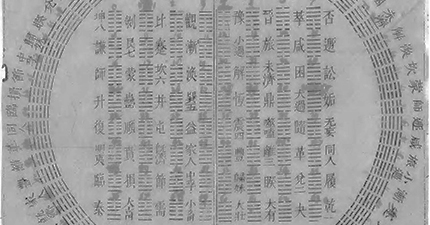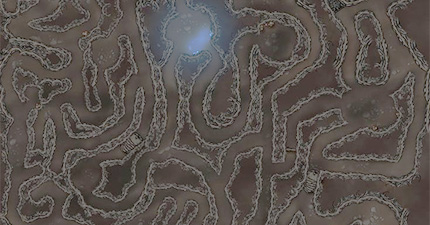I’d like to start this article by saying how much I hate it when white astrologers talk about planets in detriment (which is also called planets in exile) by comparing them to people who are vacationing in some foreign country. Apparently, things are hard when you have to read a map to get around or when you don’t know how to order food. Apparently, that’s how planets in detriment behave—like they’re tourists who are visiting some foreign land.
To understand essential dignities, you have to understand citizenship. Within Hellenistic astrology, which is also the type of astrology that the Romans used, citizenship was incorporated into cosmology. As Sylvia Wynter writes, “Greek astronomy was to remain an ethno-astronomy. One, that is, in which the moral/political laws of the Greek polis had been projected upon the physical cosmos, enabling them to serve as “objective truth” in Feyerabend’s (1987) sense of the term, and therefore as, in my own terms, adaptive truth-for the Greeks.”
Rome was all about citizenship. If you were not a citizen in Rome, then you were a slave. The Roman economy ran on the mining of precious metals but only slaves could be used as miners. If you were born inside of Rome, even if you are the child of a slave, then you were a citizen. Thus, Rome had to constantly expand so that they could conquer new people to enslave. They had to keep mining. To be a citizen within Rome was to be represented within the state.
The United States of America was designed by people who liked to cosplay as Romans. American ideas around citizenship are an example of neoclassicism—a new interpretation of Rome within modernity. Citizenship within the United States has always been based on race, even more so than within Europe (when the French Revolution happened, most of the people living in France did not identify as French).
Race in America is all about who is a settler and who is a transient. Transients are criminalized while settlers are protected. Indigenous Americans were considered transient, as were Africans, as were Chinese coolies, as were Mexicans. Only White people were considered settlers, as being at home.
In her essay, Phenomenology of Whiteness, Sara Ahmed writes about whiteness as comfort:
“The affect of such placement could be described as a form of comfort. To be orientated, or to be at home in the world, is also to feel a certain comfort: we might only notice comfort as an affect when we lose it, when we become uncomfortable. The word ‘comfort’ suggests well-being and satisfaction, but it can also suggest an ease and easiness. Comfort is about an encounter between more than one body, which is the promise of a ‘sinking’ feeling. To be comfortable is to be so at ease with one’s environment that it is hard to distinguish where one’s body ends and the world begins. One fits, and by fitting the surfaces of bodies disappears from view. White bodies are comfortable as they inhabit spaces that extend their shape. The bodies and spaces ‘point’ towards each other, as a ‘point’ that is not seen as it is also ‘the point’ from which we see. In other words, whiteness may function as a form of public comfort by allowing bodies to extend into spaces that have already taken their shape.”
In ancient Rome, citizenship actually extended beyond Rome’s borders. When the apostle Paul travels, he enjoys a special privilege because he is a Roman citizen. Within ancient Rome, citizenship had nothing to do with the state of being physically at home in your place of origin. Rather, citizenship was a special political and social prestige that emerges from power.
Whiteness, in today’s world, is not a fixed thing that only happens in white spaces but is something that follows white bodies around. Whiteness, as comfort and as being at home, extends itself outside of the West. As Ahmed writes, whiteness allows “bodies to extend into spaces that have already taken their shape.” These spaces include predominantly white institutions such as offices and schools but they also include spaces where white bodies are absent since colonialism and globalization has extended whiteness across the world. Cultural belonging, in the Roman sense and in the American sense, is a political reality that moves with some bodies against others.
Within the essential dignity scheme within astrology, there are dignified planets, debilitated planets, exalted planets, and fallen planets. For this article, we’re only going to be talking about domicile rulership and not the exaltations or falls, since domicile lordship is where this citizenship business comes in the strongest. When a planet is in its own sign, it is its own domicile lord. That place is said to be at home, in its own place of belonging, and comfortable. When a planet is in detriment or is debilitated, it is said to be in exile or away from its rulership. It is ruled by others. In a Hegelian framework, planets that are dignified are masters and planets that are debilitated are slaves.
So, debilitated planets are not like some person who is simply vacationing in a place where they don’t know the language or whatever. It fucking sucks to compare exile to tourism. Tourism is an extremely privileged way to encounter the world. When you are a tourist, you are encountering a place that was already recreated for you. When you are a tourist, you are extending your own comfort.
Debilitation is a state of existence in which you are always viewed to be an outsider, where you must constantly prove your own existence, in places that were made to exclude you.
The astrologer Doelow da Pilotman from Flight Astrology on Youtube has a good way of thinking about rulerships that I use all the time. He compares planets that are in detriment to planets that are at work, saying that you can’t really relax when you’re at work. You always have a boss that’s breathing down your neck. Planets in rulership are like planets that are at home. You can do whatever you want when you’re at home but, sometimes, because you can do whatever you want, you don’t really do anything.
This is a useful way of thinking about essential dignities because, when you’re at work, you’re in a white world. Industry is centered around whiteness as power. When you leave your house and behave as an economic agent, then you’re not going to be comfortable because you’re in a position of serving power. When you’re at home, you’re not participating in white economies. You’re in your own space.
Doelow’s metaphor of work and home life works well for people of color when interpreting essential dignities because it assumes that we live in a world that is not made for our comfort. It assumes that the public world of work is not comfortable. When I work with essential dignities, I extend on Doelow's metaphor. While the state of being oppressed is uncomfortable, I think that it is also the place that creativity emerges from. I want to do this to challenge the idea that debilitated planets are weaker than planets that rule themselves.
I think that those of us who live in this state of exclusion know full well that exclusion does not create weakness. Living in places that were made to exclude you and surviving anyway does not make a person weak. Creativity is a tool that shows up only through oppression. Living in places that were made to exclude you makes a person strange, creative, and strong. Planets that are in detriment, or exile, are not weakened by their placements. Planets that are in detriment are extremely creative. Debilitation is a strong placement.
When Jupiter is in Gemini or Virgo, suddenly you have this planet that’s all about knowledge trying to make sense of things by being very cynical. That’s not a weakened political framework. Cynicism makes politics stranger and better. When you have a Venus that’s in Aries or Scorpio, that’s not a weak Venus. That’s a Venus that’s trying to engage with the abnormal and the marginal.
Planets that are dignified are also planets that are privileged. That planet will feel like it doesn’t have to invent anything in order to take up space. Planets in detriment don’t act like that. Planets in detriment do have to reinvent their existence because, without doing so, they could not exist.
When we look at a chart using the scheme of essential rulerships, we’re looking at a cosmology that was made within the ethno-cosmology of the Romans. Within modern astrology, this ethno-cosmology has been recreated as modern race relations. When we look at a chart using the scheme of essential rulerships, we’re looking at how modern power dynamics may affect your comfort levels and your struggles. We’re not looking at some planets that are chilling at home and some planets that are traveling around.
1 of 19
>>>


